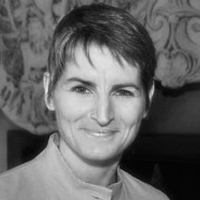Question
What are your thoughts about using the Geriatric Depression Scale to screen clients who are already on antidepressants or are receiving therapy?
Answer
Great question! Let me just start by saying that assessment tools should never replace the clinical judgement of a therapist. If you see in the chart that they are already being treated for depression, are well managed and everything that you observe backs this up, then there probably would not be a reason for you to screen them. You want to be efficient with your treatment and you are not going to be able to screen everyone.
Screening is most useful when you have some clinical suspicions and there does not seem to be any record of past mental health problems or use of antidepressant medications in the chart. If you have a suspicion, going and talking to the client briefly and asking, "How is your mood today?", is a great way to begin. It is really important to listen to their answer and make sure they are not saying, "fine", just to make conversation. You may want to ask a few more questions to fully assess their mood. On the basis of this brief conversation, you may decide to screen with the Geriatric Depression Scale. It is nice to use this as it is a great communication tool, it helps you to chart consistently and the rest of the rehab team is familiar with the scoring.
